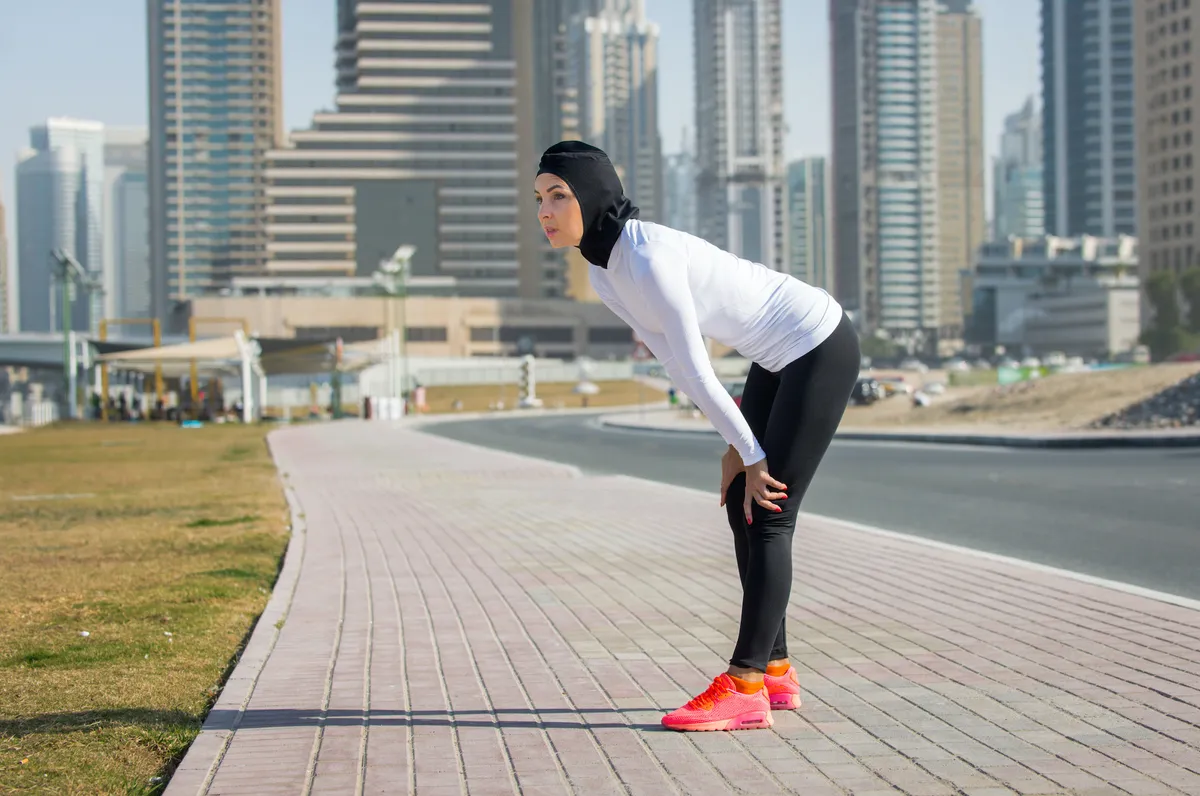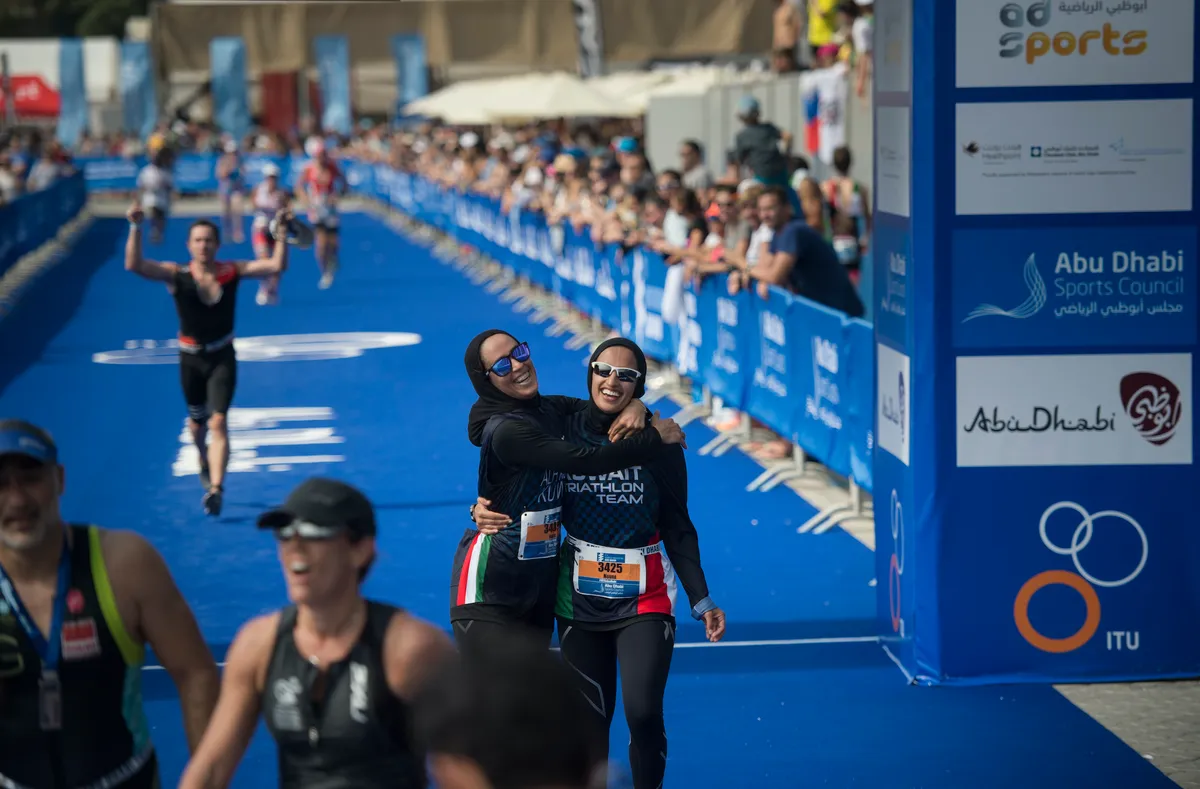As Ramadan arrives, many triathletes will be considering how it may affect their ability to train and race.
To help you out, we’ve called in some expert advice from Nutrition X performance nutritionists Professor Graeme L. Close and Mohamed Saad.
Below, they’ll explain how Ramadan affects athletic performance and what triathletes can do to make sure they’re fuelling and training as effectively as possible during this period.
What is Ramadan?
Ramadan is a period of fasting celebrated within the Muslim community and is one of the core pillars of the Muslim faith, occurring annually during the ninth month of the Islamic Calendar.
This year it begins on 2 April and runs through to the 1 May, seeing many triathletes around the world abstain from all food and drink from dawn until sunset.
The first meal after breaking the fast at sunset is called the Iftar (evening meal) and this is followed by the Sohoor (morning meal) which is the final meal before starting the fast.
Depending on an athlete’s geographical location, this fast can last longer than 21 hours, particularly for those in very northern hemispheres where daylight hours are longer during the spring/summer months.
This year, Muslim athletes in the UK will be fasting for between 13-15 hours, with sunrise taking place at around 5.30am on the last day of Ramadan.
As well as navigating the challenges of fasting for such long periods, athletes will often have to cope with sleep disturbances during this time, often waking early to consume the Sohoor.
Does Ramadan affect athletic performance?

Sports nutrition plays a fundamental role in athletic performance, with many athletes now paying close attention to the ‘3 Ts’ of nutrition (Timing, Type and Total).
Research suggests that sports nutrition should be timed around exercise, ensuring that any athlete is adequately fuelled prior to, during and immediately following exercise.
It’s therefore logical to assume that prolonged fasts could be detrimental to triathlon training. However, research suggests that – provided triathletes pays close attention to training loads, timing of the training sessions and nutrition during non-fasting periods – it’s possible to largely maintain performance during this time.
What nutritional strategies should triathletes employ during Ramadan?
In terms of nutritional considerations, the fundamental rules of good sports nutrition still apply, they just need to be adapted to fit the adapted eating schedule.
For example, if triathletes have a high training load, or are loading for competition, they will still need to target 6-10g per kg of body weight of carbohydrate each day. During non-fasting periods, this would be split evenly throughout the day in perhaps five meals over a 14-hour period.
However, during Ramadan, this will have to occur in a much smaller window, with most of this coming at the Iftar with some contribution during the Sohoor. This of course raises some gastro-intestinal considerations, but this can be mitigated somewhat by choosing lower GI sources and consuming more liquid carbohydrates.
It’s crucial to remember that while this may seem like a lot of food in one meal, the Iftar is not just a meal, but a celebration, and there are often lots of energy-dense carbohydrate foods eaten at this meal regardless of an athlete’s training loads.
A lot of the foods traditionally eaten at this time, such as dates, can also help to achieve these carbohydrate needs. What is important is that any triathlete attempts to quantify this to ensure that targets are met.
When it comes to protein, endurance athletes often strive to achieve around 1.5g per kg of body weight per day of dietary protein. This can easily be achieved during the Sohoor and Iftar (i.e, for a 50kg athlete, this is 75g protein - the equivalent of 2 large chicken breasts) although this may require more careful consideration for larger athletes.
The timing of protein intake may be more complicated though, given that research suggests that protein should ideally be evenly distributed throughout the day with some consumed post-exercise, which isn’t always possible during a limited eating window.
One potential workaround for this would be to adapt your training schedule slightly, reserving more ‘technical’ training for daylight hours and doing more high-intensity sessions in the evening, as close to the Iftar as possible. That way, you’re getting your protein in immediately after, achieving that ‘optimal’ consumption timing that research suggests is best for your body.
What could a training day look like during Ramadan?
- 5am: Pre-dawn Sohoor consisting of 2g/kg carbohydrate and 0.3g/kg of protein
- 6am: 0.3g/kg of a slow releasing protein product and 1g/kg carbohydrate
- 6.30am: Sunrise and fast begins
- 9am-6pm: Light technical training and midday nap
- 6pm: Higher intensity training and gym work
- 7pm: Sunset
- 7.05pm: Recovery smoothie or shake with 30g protein and 2g/kg carbohydrate
- 7.30pm Iftar, consisting of 2-4g/kg carbohydrate and 0.3g/kg of protein
- 10pm: Pre-bed snack of 1g/kg carbohydrate and 0.3g/kg of protein
What happens if there’s a race during Ramadan?

While it’s easy to suggest that training times could be adapted to alleviate some of the nutritional issues during Ramadan, it’s of course much more difficult to change race times.
Two of the main concerns for any triathlete facing a race during Ramadan would be the inability to take fuel and fluids on board during the race, which of course has the potential to impair race day performance.
Hydration prior to the race and correct nutrition the day before – as per the suggestion above – is therefore vital to ensure your muscles have the fuel they need to perform.
If you can, check hydration levels before sunrise to give yourself time to correct any signs of dehydration prior to starting the day.
There is also emerging research to suggest that the sensory effects of both caffeine and carbohydrates can have an impact, so mouth rinsing with these without ingesting, or swilling your mouth with a menthol mouthwash if it’s a particularly hot day, could be beneficial.
Having said that, athletes should always check with Muslim scholars to ensure if mouth rinsing is within the correct rules of the faith.
Ultimately, with careful planning and optimisation of nutritional strategy during the hours when eating/drinking is allowed, it’s perfectly possible to maintain fitness during training and mitigate most of the detrimental effects on race day performance during the Ramadan period.
We strongly recommend that any Muslim triathlete competing during Ramadan seeks advice from a qualified sport nutritionist familiar with Ramadan, who’ll be able to implement bespoke individual strategies.
Professor Graeme L. Close is lead nutritionist at Nutrition X, while Mohamed Saad is a performance nutritionist for the brand. For further information about them and the brand, head to the Nutrition X website.

